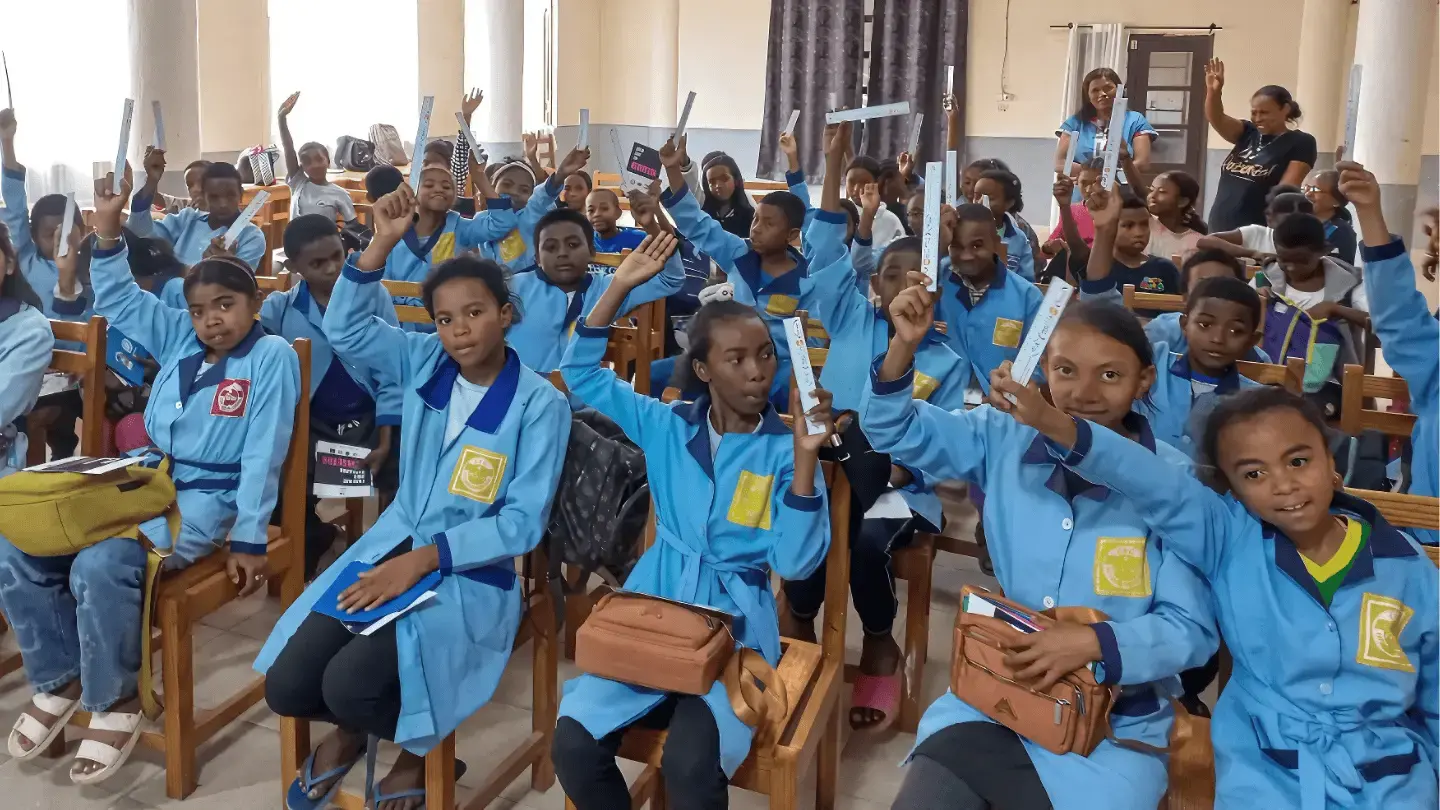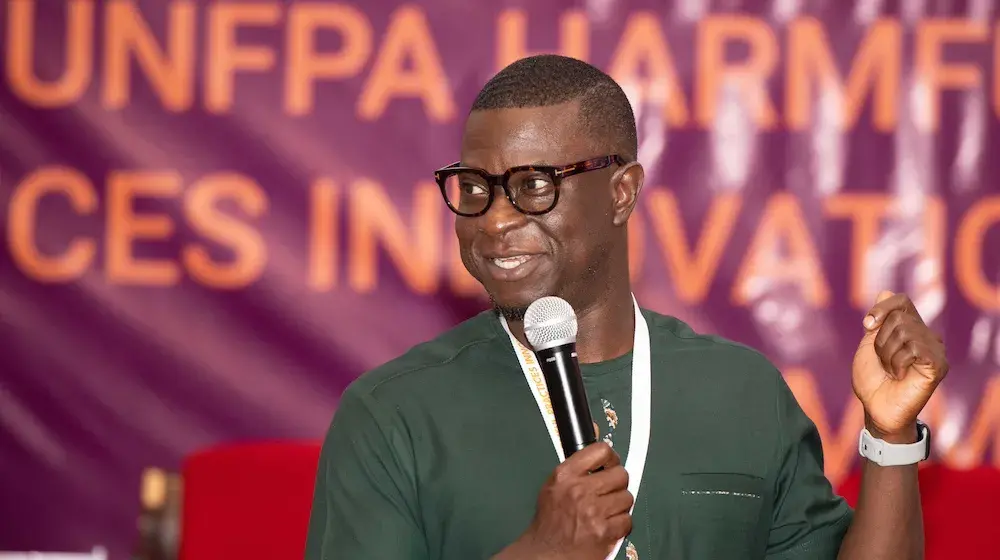SHOW GROUND COMMUNITY, Petauke District, Eastern Province, Zambia – “I’ve been living with HIV since birth. Life has not been very easy for me. I used to be shy and could not say anything in class. I always felt alone, with very few friends,” says Dunia, aged 18 years. “That is why I’m very happy that our mentor has taught us how to have healthy relationships, develop self-esteem and improve how we communicate with others. My whole life has changed for the better.”
Dunia is benefiting from the UK Department for International Development (DFID) and UNFPA, the United Nations Population Fund's supported safe space initiative, as part of the broader Government-led National Programme to End Child Marriage in Zambia.
Challenges facing girls in Zambia
Adolescents, especially girls, face a number of sexual and reproductive health challenges in Zambia. Persistent barriers in access to adolescent-friendly health services result in high teenage pregnancy rates (29 per cent), high HIV rates among girls aged 15-19 years (8 per cent of girls compared to 5 per cent of boys) and high child marriage rates (31 per cent, reduced from 42 per cent in 2007).
Collaborating to address girls’ vulnerability
In 2013, the Government of Zambia through the Ministry of Chiefs and Traditional Affairs launched a country-wide campaign to end child marriage, focusing on two aspects in particular: empowering traditional leaders to become champions of girls’ rights in their chiefdoms, and changing laws and policies to ensure that girls are legally protected from child marriage.
Since the launch of the campaign, Zambia has made significant strides aimed at strengthening collective efforts to protect girls’ rights, through both state and non-state actors.
This includes the establishment of a consortium of 11 ministries to respond to the multifaceted nature of child marriage, as well as the launch of the National Strategy to End Child Marriage in 2016 by the Government of Zambia, with support from UNFPA, UNICEF, DFID Zambia and the Government of Canada. The strategy has the ambitious goal of ending child marriage by 2030.
When the girls join this programme, they feel safe to express themselves. The safe spaces have transformed the lives of many girls and boys.
Building girls' protective assets
Guided by data, the Young Women Christian Association (YWCA) with support from UNFPA and DFID is working to provide 1,935 girls and 365 boys with sexual and reproductive health information, life skills and mentorship through safe spaces facilitated by trained mentors. "The community-based programmes link girls and boys to health, social and economic services, as well as engage community leaders to support the creation of an enabling environment” says Inunonse Ngwenya, YWCA Regional Child Marriage Coordinator in Eastern Province.
The mentors’ hard work in using safe spaces to reduce girls’ vulnerability to child marriage, teenage pregnancy and HIV is paying off.
“When the girls join this programme, they feel safe to express themselves. Believing that real and lasting change begins with girl-centered interventions, the safe spaces have transformed the lives of many girls and boys,” says Ruth Mwale, a mentor who facilitates three safe spaces in Show Ground Community, where Dunia lives. “We see critical thinking, confidence, assertiveness, communication, respect for others, and responsible sexual behaviours.”
I now know about my rights as a girl, as well as where to seek help.
The benefits of the programme are substantial, as evidenced by the girls and boys who have become empowered with protective assets – including health, social and economic knowledge and skills.
Gertrude, a 17-year-old mother who was forced to drop out of school due to pregnancy while in Grade 8, feels empowered as a result of the programme. “I’m happy this programme has come to our community. I now know about my rights as a girl, as well as where to seek help when affected by sexual violence, HIV, and child marriage. I have been encouraged to go back to school and achieve my dreams,” she says.




